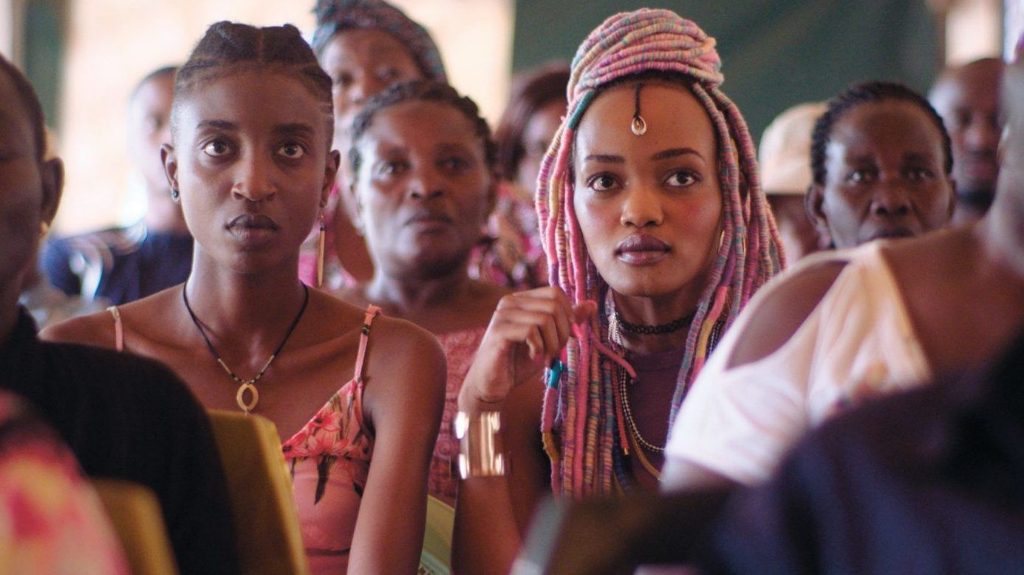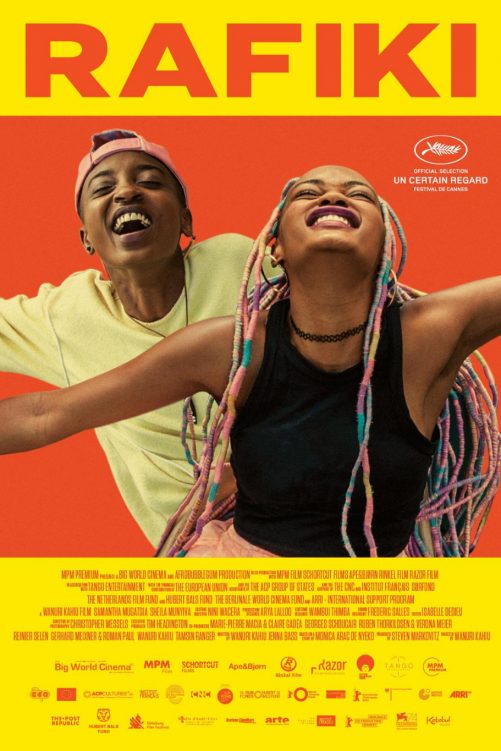Rafiki

What a triumph for Kenyan director Wanuri Kahiu. As the first nomination at Cannes for the East African nation, Rafiki is a colourful and deeply powerful statement both in the film itself as a piece of cinema and in the historical context surrounding it. Banned in its home country, the Un Certain Regard contender is a stunning expression of love: its tenderness, its pains and its ability to triumph over even the most oppressive circumstances.
A wave of bright colours and music sweeps the screen in the opening credits and sets the tone that carries through the movie. Kahiu gives us a glimpse of the vibrancy that’s alive in the cities and paints a visually exciting picture for us. What follows is a variation of the classic star-crossed lovers tale: two girls whose fathers are both running for political office in the city meet and fall in love. On the one hand, we have Ziki Okemi (Sheila Munyiva), a girl with multicoloured hair and an even more vibrant personality. Outwardly daring and bold, she longs to be “not just another Kenyan girl”, and seeks to break free from the limited future she sees ahead of herself. Her counterpart, Kena (Samantha Mugatsia), is more resigned to her fate, aiming to be a nurse instead of a doctor in spite of her keen intelligence. Ziki seems to inspire Kena to dream big and, ultimately, the two find themselves in a trial-by-fire situation when they’re outed by a friend and are forced to decide how to proceed with their relationship, given the extremely strict social laws surrounding homosexuality in their country.
Mugatsia and Munyiva have an incredible chemistry that makes for a beautifully tender and genuine performance from both actors. Occasionally, the dialogue is a bit forced, most likely because the natural cadence of the language is broken by switching in and out of English. Aside from this minor technical flaw, Rafiki is an extraordinarily fresh exploration of love and LGBTQ (and, by extension, human) rights, in a context we haven’t really seen before.
In total, one can really only commend the work of Kahiu. In a movie that was risky to make considering the politics of Kenyan society, she presents us with this story, challenging the viewer to find what’s so wrong about these two girls, these two people, in love. The director opens the door for a conversation and that in and of itself is a huge accomplishment. Kenya could be proud to be represented by her and this film at Cannes.
Zoe Tamara
Rafiki does not have a UK release date yet.
Read more reviews from our Cannes Film Festival 2018 coverage here.
For further information about the event visit the Cannes Film Festival website here.
Watch the trailer for Rafiki here:



















Facebook
Twitter
Instagram
YouTube
RSS